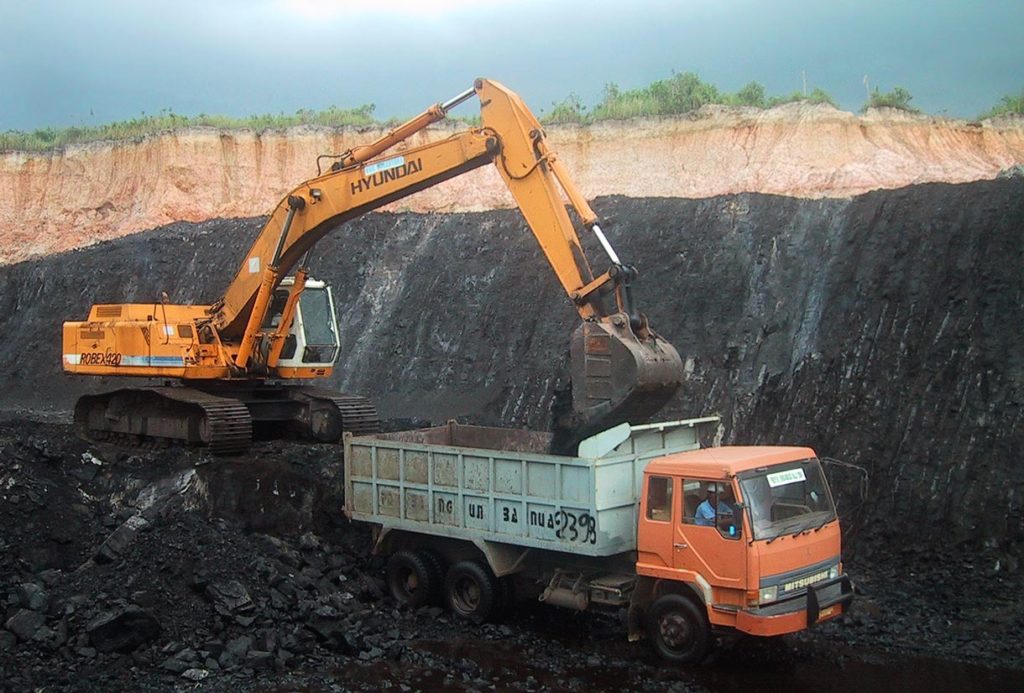A study commissioned by the international movement, 350.org, has shown that coal mining in Kogi and Gombe states of Nigeria has led to extensive environmental degradation including the contamination of air, water and soil which continue to negatively affect the health of local communities.

The coal miners fingered in the study are Dangote Cement, ETA Zuma’s Zuma 828 Coal Limited and Lafarge’s (Ashaka) Cement.
The three companies, despite stating lofty “green” and environmental sustainability positions on their websites and investor documents including annual and sustainability reports, have been accused by the environmental watchdog of continuing to practice coal mining “in a way that totally disregards the health and livelihoods of local communities and its effects on the global climate crisis”.
Landry Ninteretse, Managing Director of 350Africa.org, said: “It is already well known how dirty coal as a source of energy is, so it was particularly surprising that our study and report by International Centre for Investigative Reporting (ICRI) revealed that a company as large and respected as Dangote Cement went ahead to undertake coal mining through Dangote Coal without conducting an Environmental Impact Assessment (EIA) which is a mandatory requirement in Nigeria. It is therefore clear that Dangote is mining coal illegally in Kogi State and has recently commenced coal mining in Owukpa community in Ogbadibo Local Government of Benue State.
“We would like to urge the Federal Ministry of Environment of Nigeria to immediately carry out an environmental audit of all the coal mining sites in Nigeria. Furthermore, we would like to urge the Federal Government of Nigeria to immediately investigate and correct the human rights violations in coal mining communities in Nigeria particularly in Maigaga, Itobe, Onupi, Awo Akplokuta, Awo Ojuwo, Awo Ate, Ajobe Afeanyaka and Utala communities.
“All mining operations especially those undertaken by multinational companies such as Lafarge and Dangote should adhere to the UN Guiding Principle on Business and Human Rights.”
David Michael, Executive Director of GIFSEP, a not-for-profit based in Abuja, said: “What has been witnessed in Kogi and Gombe states is that fossil fuel companies and large corporations when in need of natural resources, initiate talks with the local community and consequently enter into agreements whose benefits are heavily skewed against the local people. These companies are benefiting greatly from the goodwill of the local community and are not honouring the agreements entered.
“There is an urgent need to review the Community Development Agreements signed between the coal mining communities and the companies in this case Ashaka Cement (Lafarge), Dangote and ETA Zuma.
“The Federal Government of Nigeria has made commitments under the Paris Agreement, known as Nationally Determined Contributions (NDCs) which are reductions in greenhouse gas emissions under the United Nations Framework Convention on Climate Change (UNFCCC) where all countries that signed the UNFCCC were asked to publish their commitments to fight climate change. In order to reduce carbon emissions, Nigeria should therefore ensure the reduction of greenhouse gases emissions starting with the phasing out of coal-fired plants.
“Nigeria being the largest economy in Africa should be a beacon for other African states by accelerating its national plans that would see a rapid, just transition towards 100% renewable energy for all Nigerians.”
